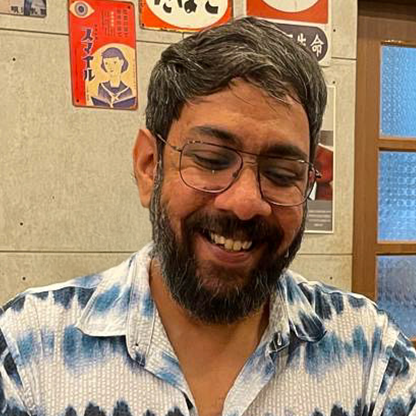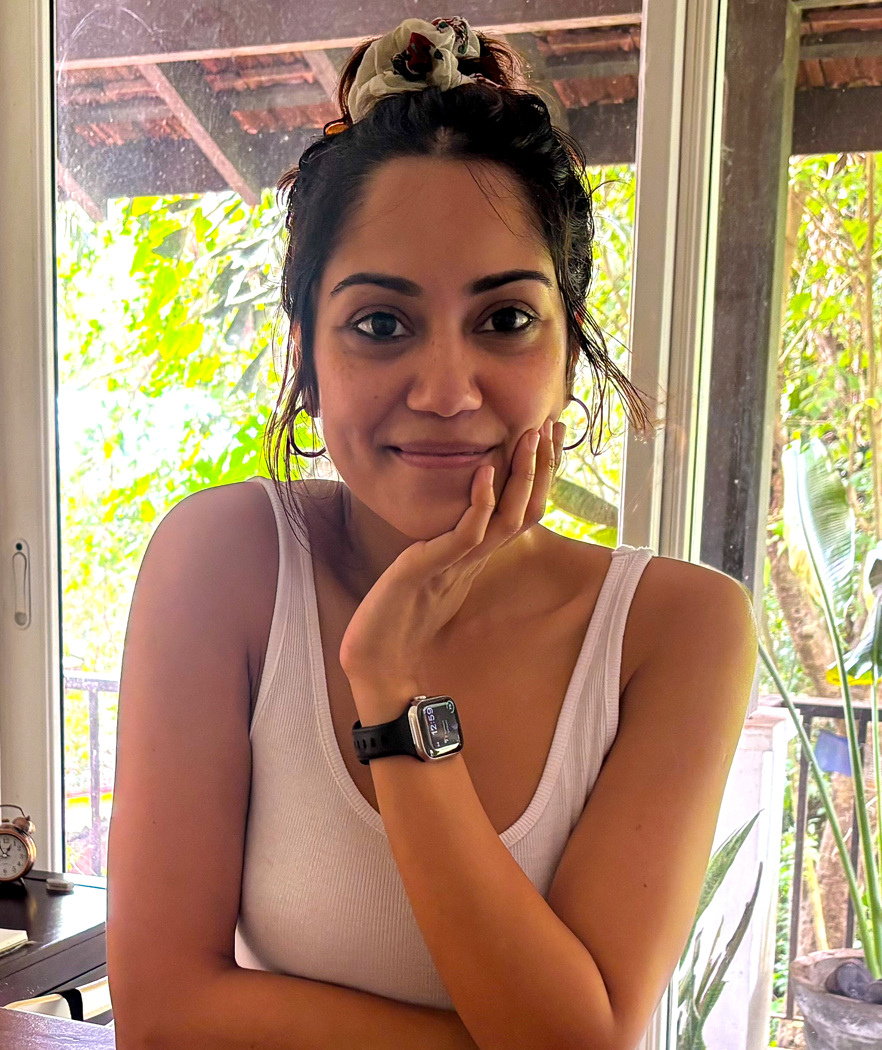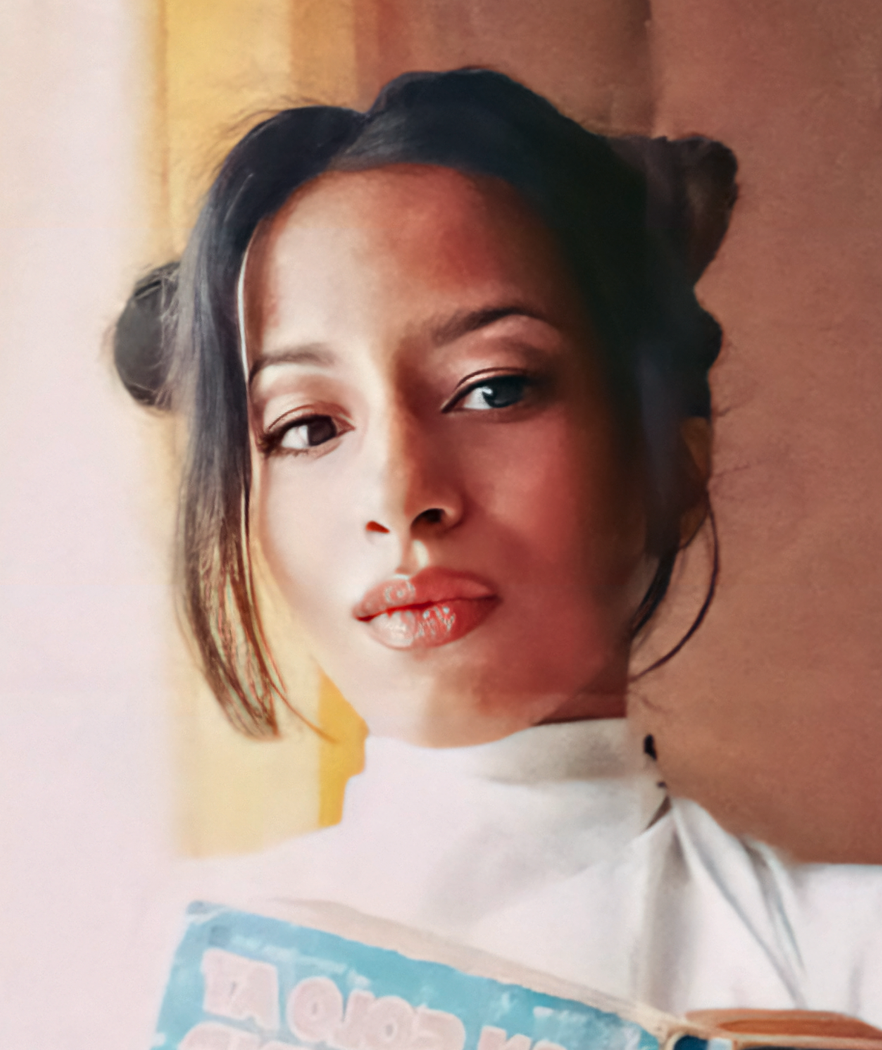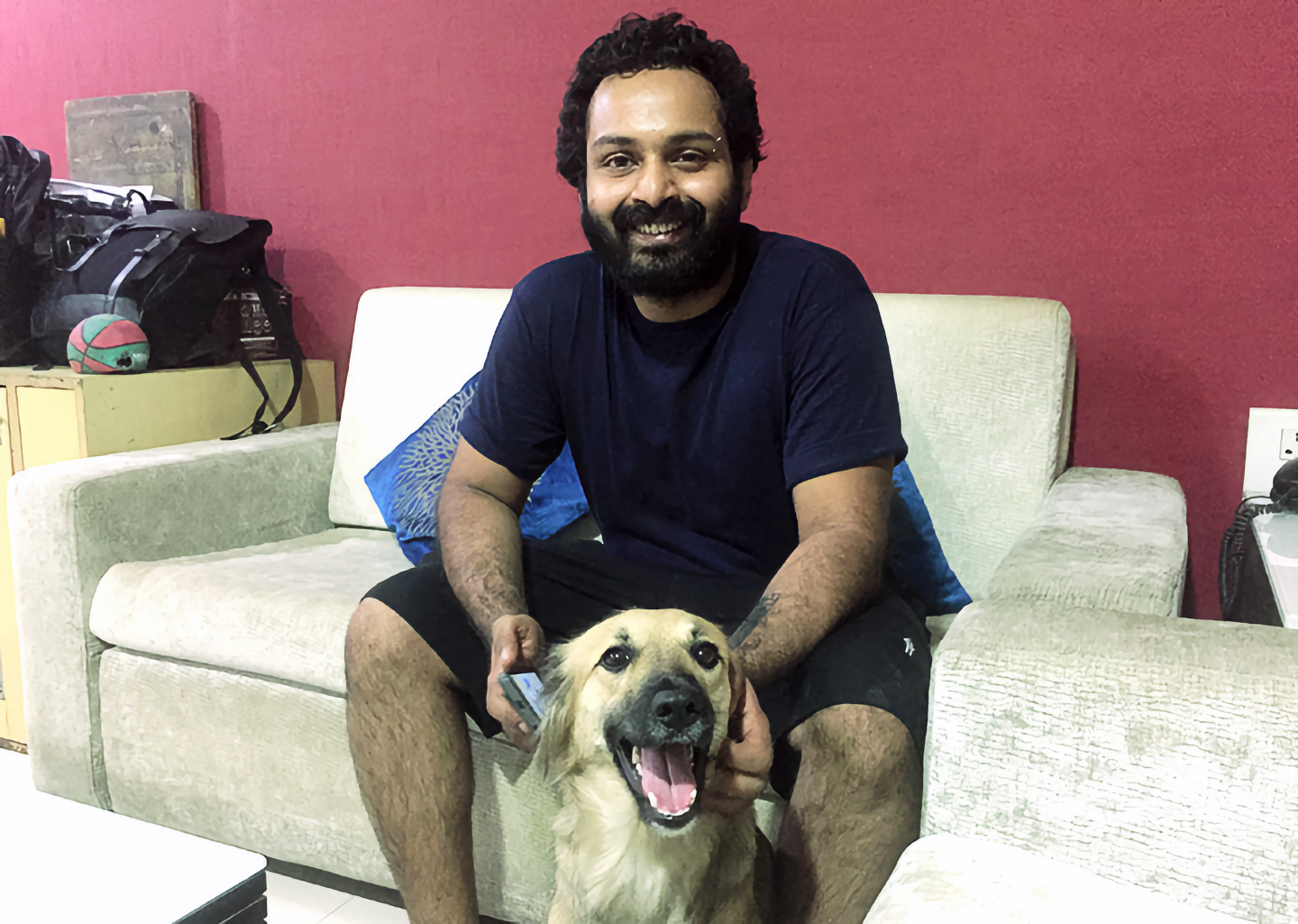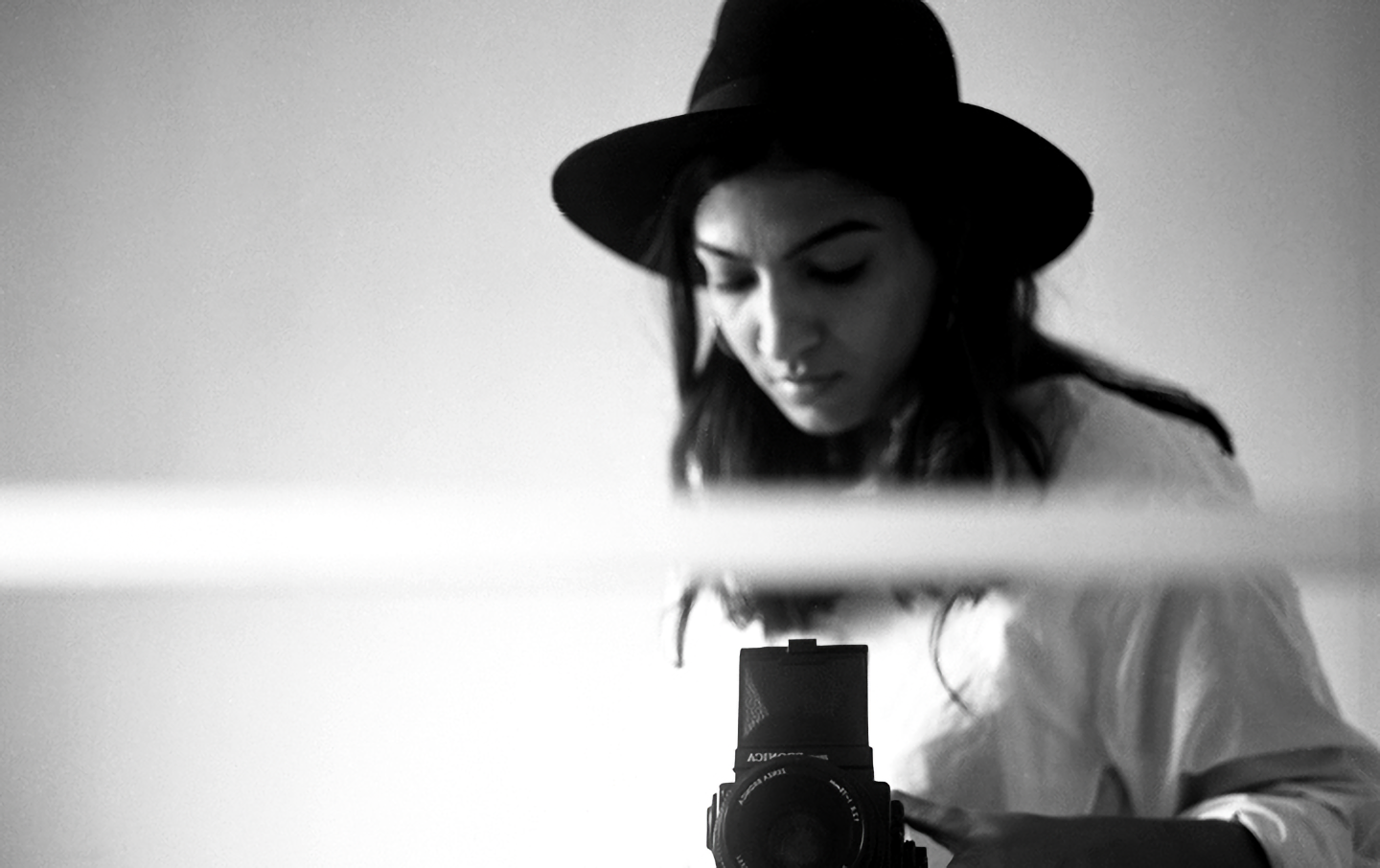Aniruddh Menon is a 24-year-old songwriter, musician, and filmmaker. The idea of home has perhaps been a more fluid concept for him than most—for the majority of his life, he has constantly shuffled between a number of towns and cities, both in and outside India. This feeling of displacement has resulted in the creation of Lovesongs, a remarkable album he released last year, with the aim of weaving a soundscape that acknowledges the sounds he grew up around. Lovesongs is Aniruddh's follow-up to Another Summer, an E.P. he released in 2014.
Read on for excerpts from a conversation with him about his music, his songwriting and collaborations with other musicians, the importance of community for creative people, belonging to a collective like Consolidate, and creating art from displacement.
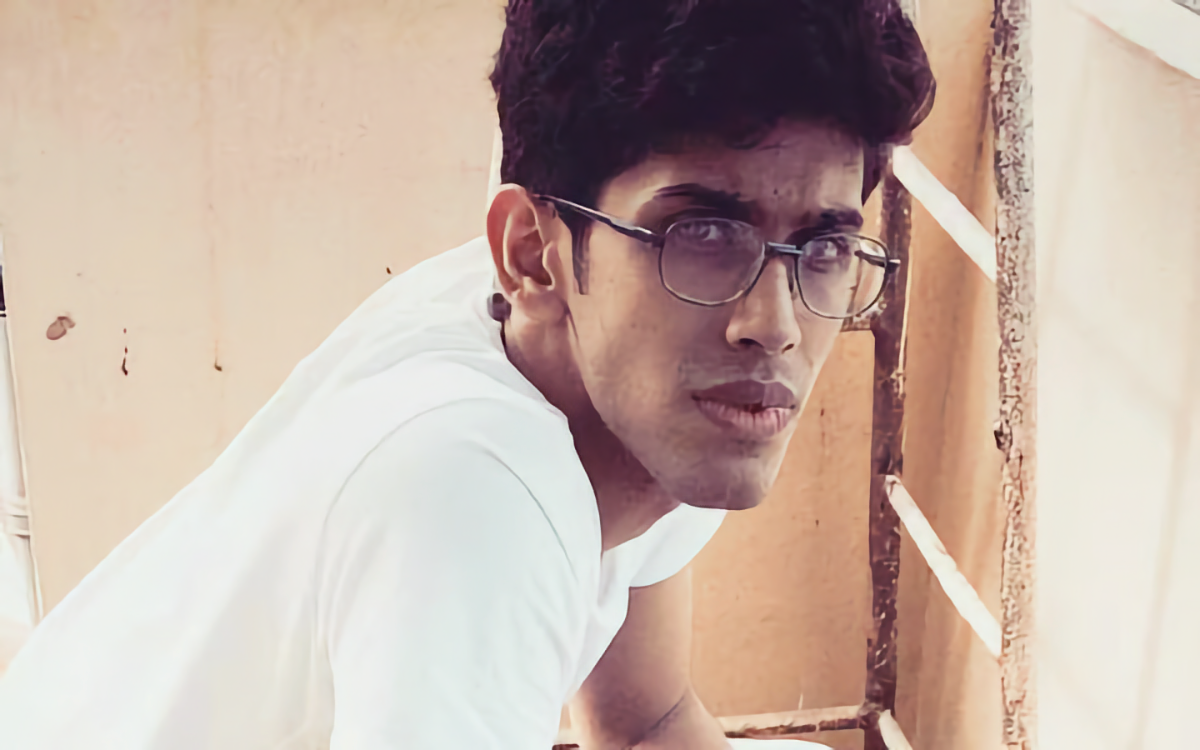
You've said that Lovesongs is an attempt to weave a soundscape around the sounds that you grew up around.
As a beatmaker, in this album, I've used a lot of samples, not just in terms of hooks, but as the basis of the songs on the album. There are a lot of samples throughout, and I actually put a lot of thought into curating what I would use. The samples come from a lot of a different places, including a lot of sounds that I grew up with, and sounds that I felt were part of my identity in some way.
Are these samples you'd collected from music that you listened to at different places, or are they sounds that you recorded yourself, to create a sort of sonic record or archive?
There's both. A good example would be a song like Morning Rituals—on that song, the Subbulakshmi sample comes from a prayer, Venkateswara Suprabhatam. It's something that my mum used to play, but she used to play the version by Bombay Jayashri, and then she used to play something else by Subbulakshmi. Later, when I heard the Subbalakshmi version of the prayer, I felt that it harks back to my childhood in a nice way. Whereas on Sunsets, you know how there's a snippet of an interview that you hear before the song starts?
Yeah.
Yeah, that's part of a series of interviews that I did. I had gone with my friends and my mum to conduct interviews with the people living here in Dubai.
Morning Rituals from Lovesongs by Aniruddh Menon.
What kinds of people did you speak to?
Mostly people I could walk up to and interview; I guess they were mostly working class people, in some sense.
Did you want to speak to them about anything in particular, or were you just curious about their lives?
Yeah. I mean, they were very... Um, okay, so I went back to India, and...
(Smiles) I think maybe we should pause for a second and go back to where and how it all started, the places you grew up in.
(Laughs) Yeah, I think that might help. I spent my childhood moving around a lot—I mean, we moved around a lot. I was born in Tamil Nadu, then we moved to Kerala, and even within Kerala, we lived in a bunch of different cities. Cochin, Trivandrum, mostly. We lived in Madras for a very brief period, then came back to Cochin, then to Dubai. We shifted a bunch of residences within Dubai, then moved to Sharjah, came back to Dubai. For college, I went to Bangalore, and came back to Dubai, where I've been for the past year [after college]. I think it was during college that I spent the most amount of time in just one place.
Do you consider Bangalore to be a sort of home for you?
Yeah, definitely. I think Bangalore is my favourite place out of all the places I've been to or lived in. I love Bangalore. It's the closest to home that I know.

“There are a lot of things in Lovesongs that document my growth in a way that no photograph or writing would have done. It is about my life, but it is also about how I see myself right now.”
What about Dubai?
No, Dubai is definitely not home. Yeah, now we can go back to the interviews I did (smiles). Dubai is home for an entire generation of people, but it's also the kind of place where you could spend your entire life and it would still never feel like home.
Why do you think that is?
For a lot of reasons, starting from the legal aspect of it. You're never given a permanent visa, it all depends on your job. As long as you're employed in Dubai, you can stay there, maybe support a family. The moment you lose your job, and if you don't get another job soon enough, then that means uprooting your entire family and going back to a country that you might not have been in for many, many years. It starts from that, and then it bleeds down to the everyday minutiae of people's lives.
Did you want to explore this in the interviews you did?
When I first spoke to people for the interviews, I didn't really know what I wanted to do. I was annoyed about how life here [in Dubai] had been painted when I went back to India, and I wanted to talk about a different aspect of it. I don't know, Dubai's image is generally very P.R.-driven; it's generally about what you can sell. You know about the shopping here, you know about the buildings here. But actually living your life here is a very different experience, especially if you're not part of the upper-class or the upper-middle-class. That's one of the things I've written as part of the album note for Lovesongs, about the villa I used to stay in with eight other families. That's a legitimate phenomenon here — people's houses are not what you imagine them to be. You hear and you see people living in conditions that you would maybe find appalling. It's not so much about life being harder; it's more about how different life is here.
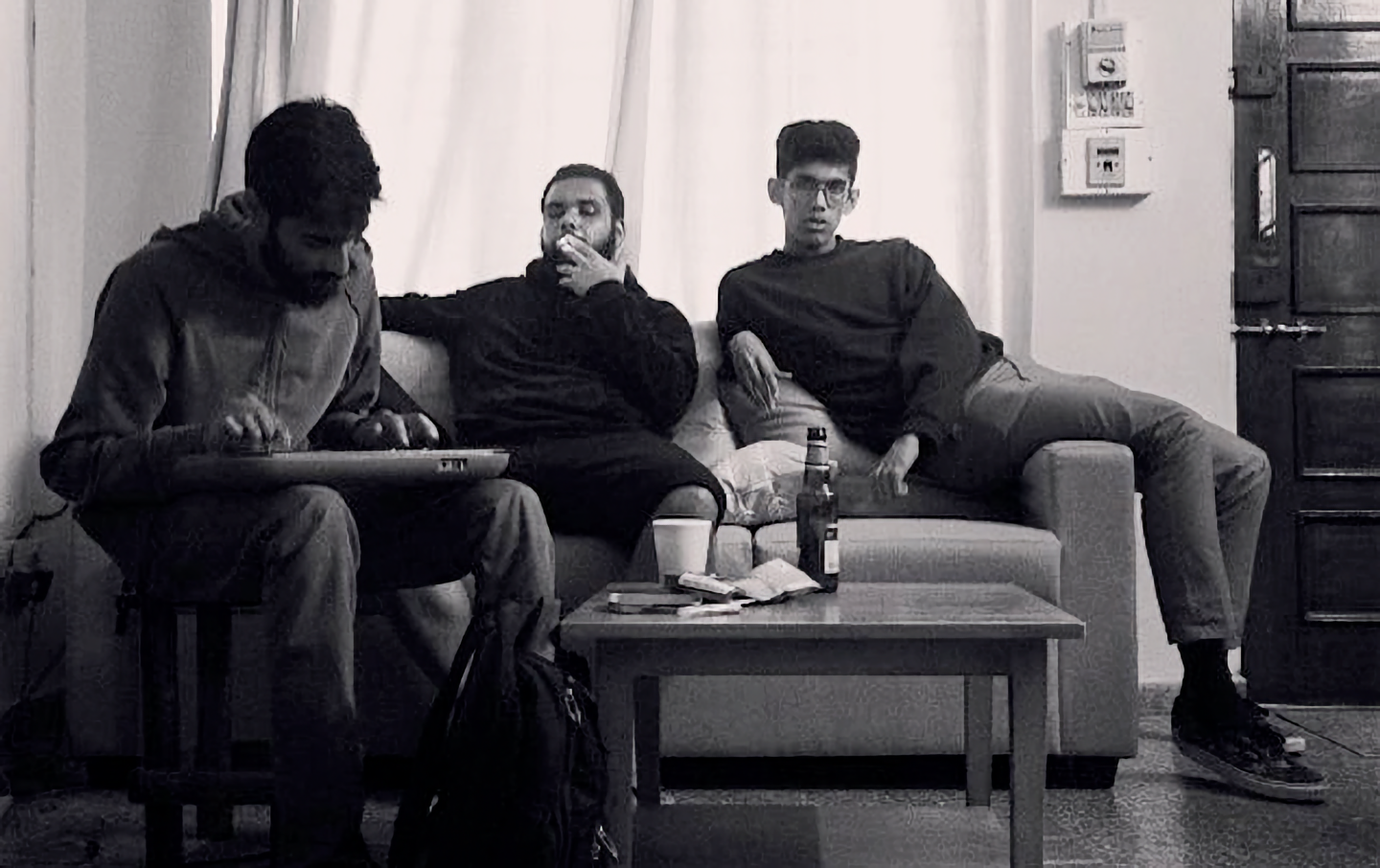
Did you want to counter the perceptions and aspirations about Dubai that a lot of people in India have?
Yeah. I've actually made a film around Sunsets—I've incorporated the interviews and the song into a short film, which I'm actually finishing the editing for at the moment. I should be able to put it out soon. The film will do a better job of explaining what I had in mind, more than me just talking about it (smiles).
How did the song itself come about?
Sunsets was kind of written... I was leaving India, and I was worried about how my relationship with my girlfriend Sandhya [Visvanathan] was going to be—we both went to college together in Bangalore. I wrote the song in that state of mind. When I sent the beat to Shoumik [Disco Puppet], he didn't know what to write over it initially. I told him about what I was feeling. He was going through something similar in his life that he channelled into the song. The working title for the song was A Sea Between Us, and that's the feeling that the song evoked. It also tied in with some of the stuff I had gotten from the interviews, that I had done years before the song was being written, about people missing their families.
Sunsets from Lovesongs by Aniruddh Menon, feat. Disco Puppet.
That was the single biggest thing about those interviews—you come here and you earn. For many people from the working class, it's impossible to bring their families to Dubai. My family is quite fortunate in that sense because we live together, and we have a lot of comforts that come with that. But most people, they send money back home, that's what they're here for.
The ideas kind of linked in my head, and I put the sample into the song. I decided I could build more on that, which is where the film comes in as well.
Is that something you take seriously? Being a filmmaker?
I want to, yeah. In my last two years in college, I took a lot of animation and film courses. Right now I'm not doing enough in this area, but it's something I really want to work on a lot more. I have some scripts, but I'm feeling a bit stuck.
You'd released another E.P., Another Summer, before Lovesongs came out. Is the album, for you, linked to the E.P. in any way?
No. It's really not (laughs). I feel like I'm a very different person now from when I made Another Summer.
Did any of the material for Lovesongs come out of the songwriting process for Another Summer?
There were some tracks I was working on at the time that became tracks on Lovesongs, but Another Summer came out of being in Dubai one summer and just wanting to create something at that point in time. It was very hot and I couldn't spend much time outdoors. It was annoying (laughs). I gave myself a clear time limit of two months to create music, and I was going to put it out at the end of it.
Lovesongs, on the other hand, has been in the works for a long, long time—the songs started off as very different ideas and they kept changing, sometimes to the point of overkill. I've been sitting on this for way too long (laughs). I'm not sure what it's like for listeners, but for me, it was emotionally exhausting. I often had to take breaks when I was writing the songs because I knew that a lot of times, it was my insecurities changing the songs; it wasn't necessarily to make the songs better that I was changing them.
Would you say that working on Lovesongs was a way of documenting your life so far?
Yes, very much so. Lovesongs is definitely a document of who I am at this point. There are a lot of things in there that document my growth in a way that no photograph or writing would have done. It is about my life, but it is also about how I see myself right now. A year or two from now, I'll probably make a very different kind of music about my life, if that makes sense.
You've collaborated with other musicians on the album as well.
I've already told you the story about Shoumik, but I'd just like to state for the record that it was one of the smoothest collaborations that I've ever been a part of (laughs). It hardly ever happens that you have an idea and you give it to someone and they just hand it back to you completely finished, you know what I mean? I've worked with him before, and he just brings this great energy to any project he works on. He's great—I'm just going to leave it at that (laughs).
Besides that, there's Giant Robots in the Sky with Ustad Kitty. That's Rishabh Iyer, who is also Worm's Cottage. I don't know if he'll like me putting that out there (laughs).
Giant Robots in the Sky from Lovesongs by Aniruddh Menon, feat. Ustad Kitty.
Is that like a secret identity?
Yeah. He's a mad genius type person. He is Ustad Kitty and Worm's Cottage and if he doesn't have a third identity already, then sooner or later he's going to have one, you know? (laughs)
(Laughs)
So yeah, I had put up a beat on SoundCloud when I was bored and I kind of forgot about it. A week later, he walked up to me when we were getting dinner and told me that he'd written a whole song to the beat with this entire sci-fi backstory about how aliens fly to earth hoping to harvest blood, which is what they use as the fuel for their spaceships. When they arrive on earth, there are no humans here, and they get a call from their home planet saying that the humans have arrived there, looking to harvest oil.
Wow.
Yeah, and he'd written this whole thing out, and he showed me his notepad and everything. All I had to do at that point was just record it. It took a little time but it was amazing—to have someone see that in your music and make a song out of a beat.
Tell me about Looming.
Yeah, so for Part 1 of Looming: when I first started making music, Benkii—I'm just going to call her Sanjana here, because I feel strange calling people by their artist names (laughs). Sanjana [Nyapati] and I were friends from our first year of college—I knew her from before I started making electronic music, and we always spoke about working on something together. Over the next few years, I used to send her stuff occasionally and ask her if she wanted to do something over it. A couple of years ago, I sent her this track that she sang on, and the vocals later got transplanted on to what became Looming. That happened because the track I'd sent her originally was very pop-py, much more uptempo, and I didn't identify with it any more. It wasn't the kind of music I made any more. Sanjana and I met halfway, I guess, and we decided to work on future collaborations quicker, so that this kind of thing doesn't happen again (laughs). She has a great voice, she really does.
Looming (Part 1) from Lovesongs by Aniruddh Menon, feat. Benkii.
For Part 2 of Looming: in Another Summer, my last track is with Sandhya [Pardafash], and it's the weirdest song on the E.P. I feel comfortable doing my weirdest tracks with Sandhya—she's the oldest collaborator I have, musically.
How do you approach collaborations with other musicians?
In terms of the lyrics and everything, I usually leave it up to the people I collaborate with. With Shoumik and Sandhya as well, I sort of nudge them towards certain directions and I give them context for the music that I give them, but they bring their contributions to the music. When you're writing a track, you already kind of know in your head who the right person is for the song.
With Sunsets, I knew that Shoumik was the right person to collaborate with for the song. Sandhya and I have been dating for a while, and we've been working together on music and other projects for a while, and I'm trying to make a tradition of ending my longer releases with her on them. Out of all the tracks on Lovesongs, I feel like the last one is the most uncompromising in terms of how I want my sound to be.

“With music, this awful thing happens, where if you work on something for too long, you’re not hearing the song any more.”
From the first time I listened to the album, I thought that both the opening and closing tracks on Lovesongs were spot-on and beautifully done.
Thanks (smiles). Rahul Giri [from Sulk Station/ _RHL/ Consolidate] also deserves a lot of credit for this album because he spent a lot of time with me, talking about mixes, about the order of the tracks, all of that. When I sent the album to him, the one thing I knew for sure was what the first and last tracks should be, because they set the context for the album. I'm really glad that you like them.
On many of the tracks on the album, I felt like I was going a little too much into my own world, but on the last track, I feel like I didn't ease up or compromise in any way. I don't know why that is—maybe it's just my personal bias that makes me think of giving it to Sandhya to sing over. I like that she also makes the song weirder in her own way, and I'm quite happy with the way it's turned out.
Is it something about the way you work on tracks with Sandhya that makes that collaboration so fruitful, or is it something that just works without thinking about it too much?
It has a lot to do with how we work together. Whenever we work together we end up fighting (laughs). Sometimes we sort of take a call on whether something is going to be worth the eventual fight we're going to have or whether we should just back off (laughs). There will be a point where I'm not happy with what she's done, and there will be points where she's not happy with what I've done, but when we finally do agree, you know that the end result is something solid.
Looming (Part 2) from Lovesongs by Aniruddh Menon, feat. Pardafash.
What does it take for you to say that a project—a song or an album—is complete?
Hmm... part of it is getting sick of the project (laughs).
(Laughs)
Yeah, getting sick of the project, and taking a break, and not listening to it for a week or two. And then, of course, coming back and listening to it and seeing if it works. That's the process that usually works for me, both with music and with films. With music, this awful thing happens, where if you work on something for too long, you're not hearing the song any more. You're just seeing the stems in your head—that's when you need to step away from it. What's that phrase... you're not seeing the forest for the trees. Whatever. You get it (laughs). You need a break, you need to get distracted from what you're working on.
As a creative person, do you consider yourself to be a disciplined person? Are you routine-oriented? Do you set deadlines for yourself and stick to them?
This album should have come out a year before it did (laughs). I'm not great with deadlines and I used to beat myself up about it, but it's because I'm interested in a bunch of different things. I'm just trying to figure out a process that works for me. 'I'm going to play the drums for an hour every day': that's the kind of stuff I used to keep telling myself, but it never worked. If I focus on remaining curious and focus on whatever project I'm currently working on, it works a lot better. I'm not nearly as disciplined as I'd like to be, but I'm trying to come up with a schedule that allows me to be more productive.
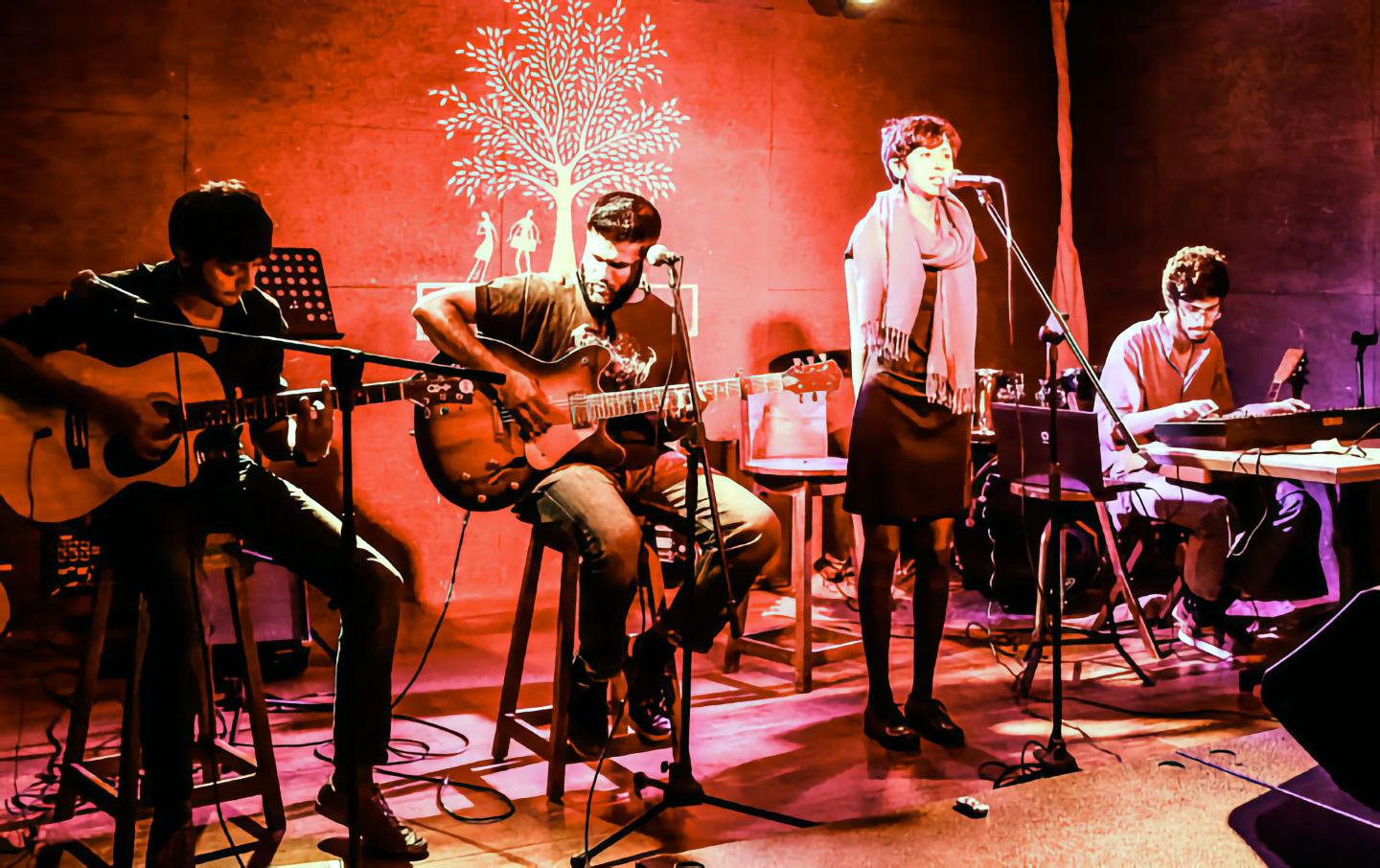
Do you have people that you like to go to when you feel stuck while working on a project or when you're not sure about an idea?
Yeah, yeah. Depending on what medium it is: whether I'm drawing or writing or making music, I actually put together my own focus test groups, in a sense (laughs). I send it to five people who have very different opinions on everything, and I get their opinions. Earlier I used to send stuff to people I was close to—I'd send it to Sandhya and if she didn't like it, it would work me up. She was maybe one of two people that I would send stuff to. But now I've made the list bigger and that really helps, because people give you varied opinions, and if you trust those opinions, then you have a pretty good ideas of where things stand.
How important is it for you to feel like you belong to a community of creative people?
Pretty important. Consolidate is something I'm currently putting a lot of energy into, along with Giri and Shoumik and everyone involved. It is a collective more than anything else, I feel. It is a record label, but it's also about people who are comfortable with each other working with each other. A lot of us from the collective have known each other for some time, many of us have studied together. Belonging to a community is really, really cool because you don't have to be great at everything. You don't have to figure your entire album, your entire song list, your mastering, your mixing, etc. yourself. You have people that you can ask for help, especially people from the collective. It's also just nice to build something like Consolidate from the ground up.

“It gets really lonely if it’s just every man for himself. I don’t enjoy that, and I don’t think anyone really enjoys that.”
Yeah, I wish more people created initiatives like Consolidate.
Yeah, that's the reason Giri came up with it, because there was nothing else like it in Bangalore.
In a lot of creative professions in India, you often see that there's a lot of competition, and people don't really want to help each other out. There are lots of cliques forming, etc. Something like Consolidate feels a lot more wholesome.
Yeah, that sort of competitive approach is just self-detrimental. And it gets really lonely, if it's just every man for himself. I don't enjoy that, and I don't think anyone really enjoys that. There are some people who want the glory for themselves, but as far as Consolidate goes, there's no one in the collective like that. We're trying to be a lot more than just a record label, and I can't wait to see what we come up with.
Now that Lovesongs is out, are you considering playing your music live as well?
I definitely want to build a live set. I'm not keen to do it with just my laptop—I want to be playing instruments live, I want to bring more of that energy into my live set. There are people who can do that with just their laptops, but I'm not one of them. I'm trying to figure out what I'll play, whether it'll be the drums or the keys, or both. That also means that I have to get my keyboard repaired, get a proper sound card, all those things. I like the idea of playing my music live to an audience—I think I want to make playing live a much bigger part of my life than it has been so far.
The Setup / Aniruddh Menon
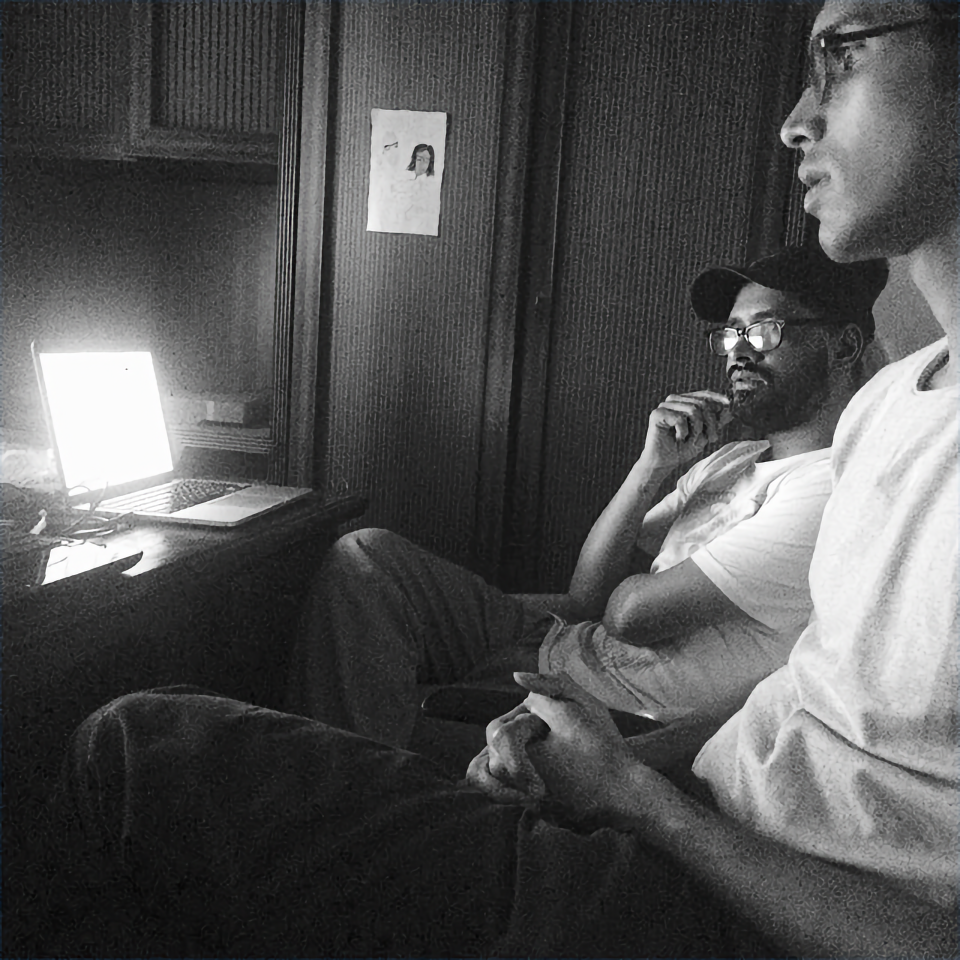
"An HP laptop running FL Studio and Ableton 10. Whatever MIDI controller I can get my hands on—usually either a Behringer or Sandhya’s Novation Launchkey. An old Yamaha PSR60 keyboard. A kazula/ kalimba (a type of mbira instrument). A Yamaha Steinberg sound card. Whatever drum kit I can get to—usually Joe Panicker's."


